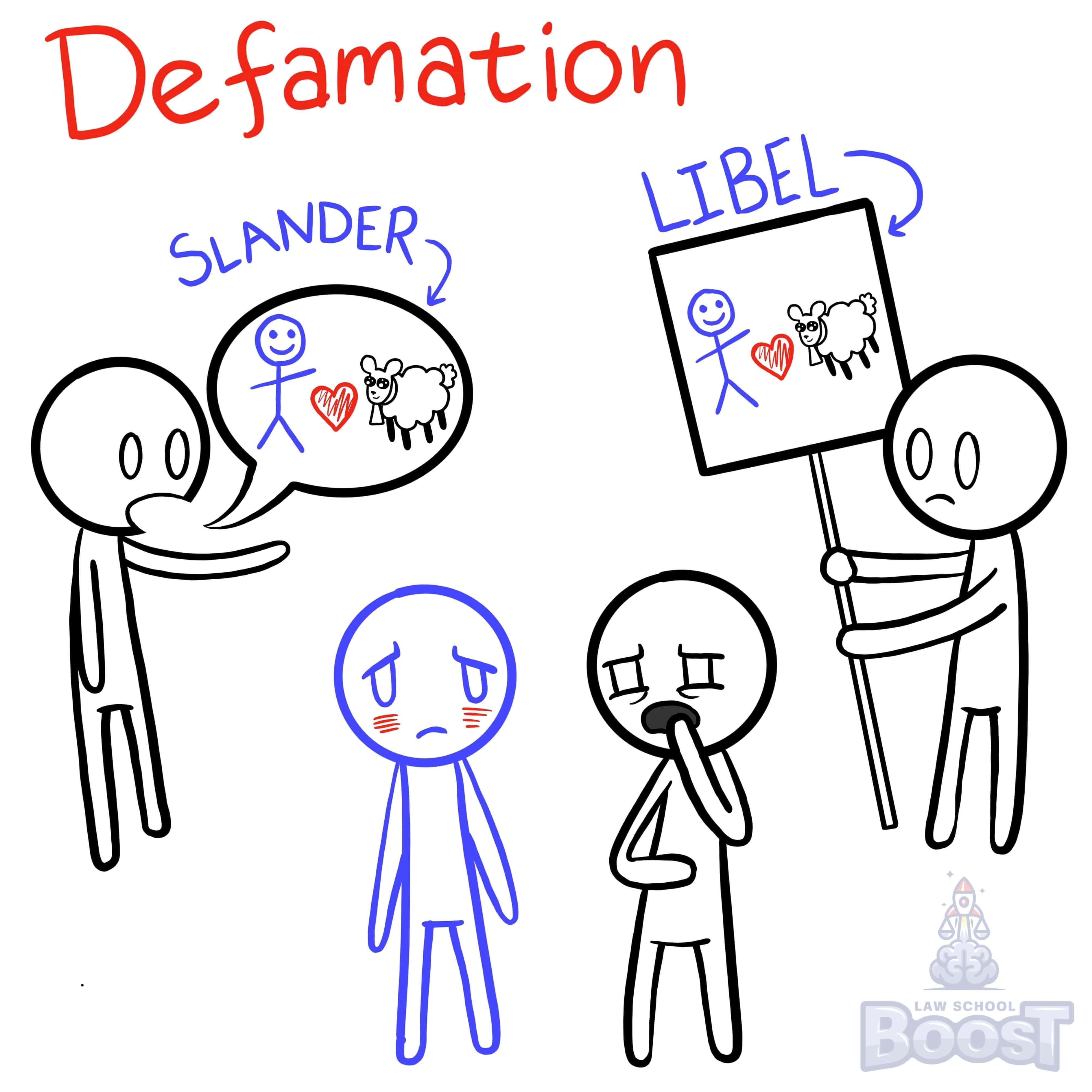👀
Torts • Defamation
TORT#087
Legal Definition
Libel is written (often broadcast) defamation. Libel is per se defamatory on its face. General damages are presumed, and the plaintiff need not prove special damages.
Plain English Explanation
Slander is bad, but there is not that much harm in a person saying something defamatory to one or more people. Sure, it's not nice... but after it is said, and the words are spoken into the universe, they are no longer a continuous danger or harm. In contrast, libel is defamation that has been recorded.
In other words, libel is more serious defamation because it is defamation that can live outside of the moment when it was first written or spoken. It's a type of broadcast that can be rebroadcasted, which reharms the victim.
For this reason, like slander per se, damages are presumed for libel.
In other words, libel is more serious defamation because it is defamation that can live outside of the moment when it was first written or spoken. It's a type of broadcast that can be rebroadcasted, which reharms the victim.
For this reason, like slander per se, damages are presumed for libel.
Hypothetical
Hypo 1: Sam owns a restaurant called Sam's BBQ and always adheres to health codes. Bob hates Sam. One day, Bob buys a commercial slot on the local radio station that says "Sam spits in the food at Sam's BBQ." Many people, including Sam, hear the commercial. Result: Bob has committed libel because his defamatory statements were recorded and broadcasted.
Visual Aids

Related Concepts
In assessing a defamation claim, what is actual malice?
In assessing a defamation claim, what must a plaintiff prove when a statement is a matter of public concern?
In assessing a defamation claim, what must a plaintiff prove when the issue is a matter of private concern?
In assessing a defamation claim, what must a plaintiff prove when they are a private person and the statement is a matter of public concern?
In assessing a defamation claim, what must a plaintiff prove when they are a public official or figure?
What is defamation?
What is libel per quod?
What is slander?
What is slander per se?
What may be used as defenses to a defamation claim?
When is absolute privilege a defense to defamation?
When is consent a defense to defamation?
When is qualified privilege a defense to defamation?
When is truth a defense to defamation?


